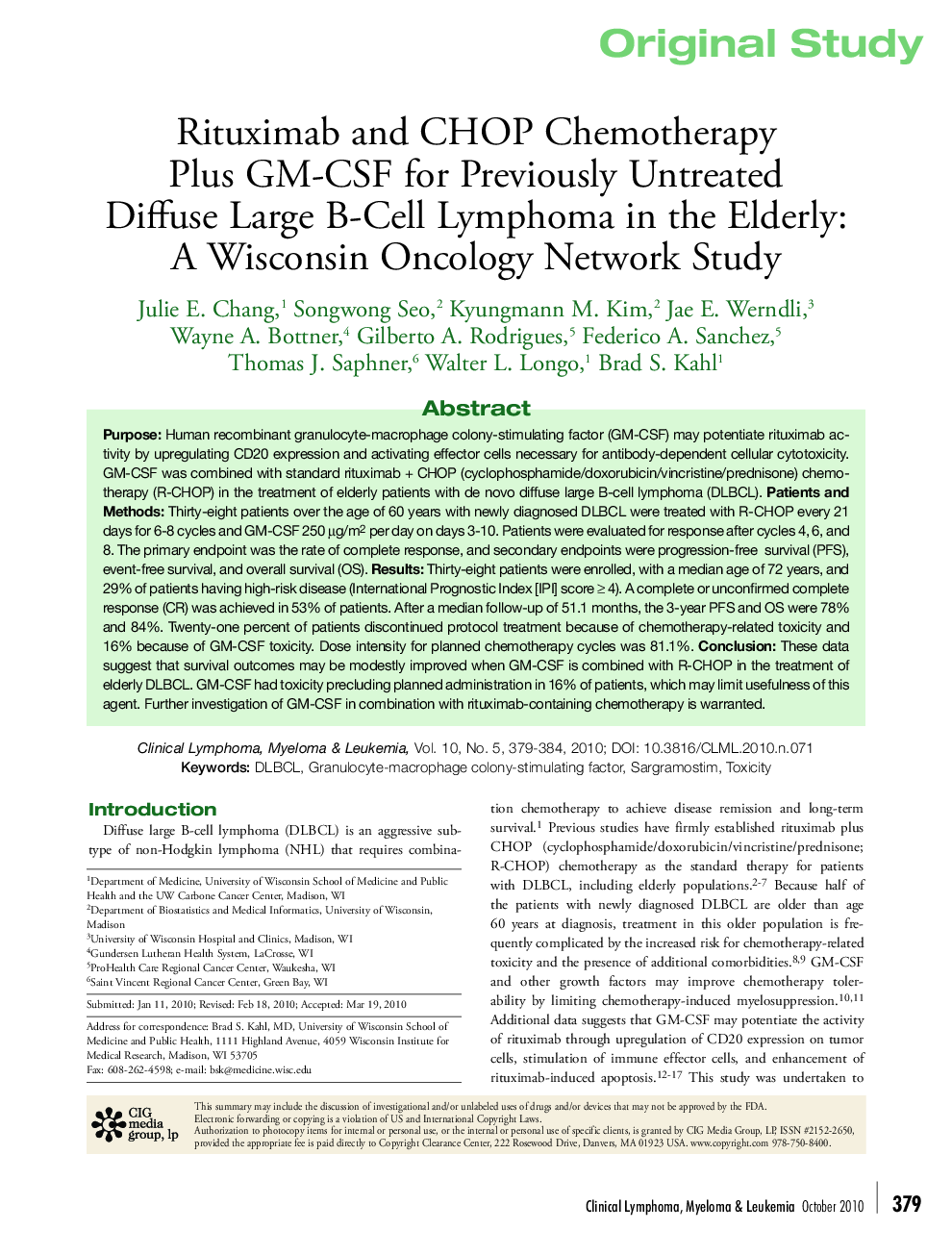| Article ID | Journal | Published Year | Pages | File Type |
|---|---|---|---|---|
| 2755487 | Clinical Lymphoma Myeloma and Leukemia | 2010 | 6 Pages |
PurposeHuman recombinant granulocyte-macrophage colony-stimulating factor (GM-CSF) may potentiate rituximab activity by upregulating CD20 expression and activating effector cells necessary for antibody-dependent cellular cytotoxicity. GM-CSF was combined with standard rituximab + CHOP (cyclophosphamide/doxorubicin/vincristine/prednisone) chemotherapy (R-CHOP) in the treatment of elderly patients with de novo diffuse large B-cell lymphoma (DLBCL).Patients and MethodsThirty-eight patients over the age of 60 years with newly diagnosed DLBCL were treated with R-CHOP every 21 days for 6–8 cycles and GM-CSF 250 μg/m2 per day on days 3–10. Patients were evaluated for response after cycles 4, 6, and 8. The primary endpoint was the rate of complete response, and secondary endpoints were progression-free survival (PFS), event-free survival, and overall survival (OS).ResultsThirty-eight patients were enrolled, with a median age of 72 years, and 29% of patients having high-risk disease (International Prognostic Index [IPI] score ≥ 4). A complete or unconfirmed complete response (CR) was achieved in 53% of patients. After a median follow-up of 51.1 months, the 3-year PFS and OS were 78% and 84%. Twenty-one percent of patients discontinued protocol treatment because of chemotherapy-related toxicity and 16% because of GM-CSF toxicity. Dose intensity for planned chemotherapy cycles was 81.1%.ConclusionThese data suggest that survival outcomes may be modestly improved when GM-CSF is combined with R-CHOP in the treatment of elderly DLBCL. GM-CSF had toxicity precluding planned administration in 16% of patients, which may limit usefulness of this agent. Further investigation of GM-CSF in combination with rituximab-containing chemotherapy is warranted.
